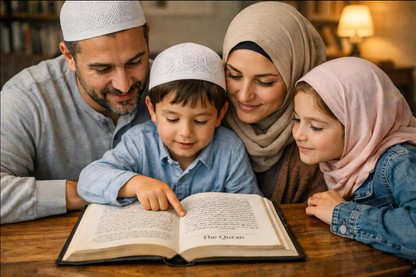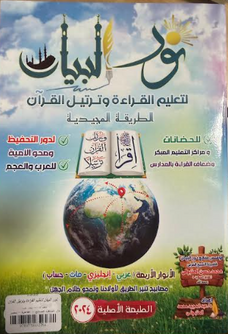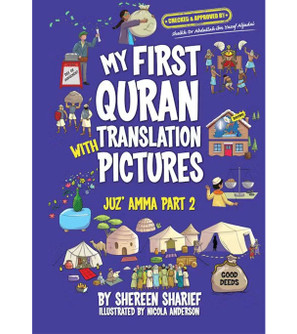4 holy months in Islam
As we approach the end of the Hijri months every year, we must be familiar with the 4 holy months that Allah has specified in the Quran. What are they? And why are they sacred? What should we do about them? This and more in this brief article from Madinah Media.
The Four Holy Months In Islam
The four months were addressed by name in a hadith reported by Imam Al-Bukhari. According to the Prophet (PBUH), “The division of time has turned to its original form which was current when Allah created the Heavens and the Earths. The year is of twelve months, out of which four months are sacred: Three are in subsequent Dhul-Qaida, Dhul-Hijjah and Muharram, and (the fourth is) Rajab” (Sahih Al-Bukhari) According to the Prophet (PBUH), the four sacred months of Islam are Dhul-Qaida, Dhul-Hijjah, Muharram, and Rajab. Even before the Prophet Muhammad (PBUH) transmitted the hadith, these months were recognized to be holy. Even in pre-Islamic Arabia, battles were prohibited in memory of the four months, which the Arabs revered. It's also worth noting that the months correspond with the times when Muslims can go on pilgrimage.
Virtues of the Four Sacred Months in Islam
We can learn about some of the qualities of the sacred months by examining our knowledge treasure, the Quran and Sunnah. You can read all about the virtues of those sacred months by browsing the Madina store for verified books. It’s an Islamic bookstore that strives to supply authentic Islamic books on different subjects. Why are the four months respected and sacred? Why should a believer make the most of his time during these months? The best Islamic books on the subject have taught us the following lessons:
Allah Blesses Those Months
Allah SWT has planned for the four months to include a number of noteworthy dates and events. In Dhul-Hijjah, we have unique days with abundant gifts for both pilgrims and non-pilgrims. They include the Arafah day, the three days of Tashriq, and Eid-ul-Adha. One should also take full advantage of the first ten days of Dhul-Hijjah, which are known to be the best days of the year. According to Rejab, the Prophet traveled to Israa and Mi’raj to meet Allah SWT in the seventh sky beyond the heavens. Fasting becomes worship during Muharram, ranking among the highest orders of performance.
Allah Proclaimed the Magnificence of These Months
According to a snippet from Imam Ibn Kathir's Tafsir, Allah has chosen the chosen ones from His creation; He chose messengers from the angels and Messengers (prophets) from mankind, and He chose Zikr (words of remembrance) from the many words, and He chose places to make worship from the surface of the earth (mosques). He also picked Ramadan and the Sacred Months among the months (of the year), Friday from among the days (of the week), and the Night of Power (Laylat al-Qadr) from among all the nights (of the year). So glorify what Allah has exalted because praising what Allah has glorified is one of the educated and intellectual matters.” In Islam, there is a notion that whatever Allah SWT and the Prophet (PBUH). accept as good, Muslims honestly and with sincerity acknowledge. Allah SWT has stated that the four months indicated are the best, and because it is a decree from Allah SWT, there must be advantages to respecting these months. For example, if you practice worship throughout these four months, their benefits will be increased merely because it is noted.
What Should We Do During These Months?
Knowing the importance of the four sacred months can be useful, only if one were to act upon it. The following are some guidelines to be in tune with the sacredness of it all:
Avoid the wrongdoings
“Indeed, the number of months ordained by Allah is twelve—in Allah’s Record since the day He created the heavens and the earth—of which four are sacred. That is the Right Way. So do not wrong one another during these months. And together fight the polytheists as they fight against you together. And know that Allah is with those mindful (of Him).” (Surah At-Tawbah)
It is sometimes simple to detect the wrongdoings of others, but it is more difficult to acknowledge our own transgressions. Rather than trying to defend our actions, avoiding them during the four sacred months might be the game-changer we've been waiting for. A person might reflect on their mistakes, whether they were made to friends, family, or strangers. These months might be used to cease being unkind to oneself. A person might become used to performing deeds for which they will have to account later on Judgement Day.
Putting a quick stop to the wrong that we do may be difficult, but four months is a good time to begin inside a wonderful period for abstinence.
Do more good deeds
We now know that the months of Dhul-Qaida, Dhul-Hijjah, Muharram, and Rajab are indeed fortunate and that every good deed will reap double benefits. This knowledge will only be beneficial if it is put into practice. Throughout the four months, one might set aside time for fasting, charitable giving, and increasing supererogatory prayers. If these activities seem a little too lofty to begin with, one may build a steady momentum of performing good deeds by doing basic things like reciting zikr, praying on time, and giving presents with the aim of bringing joy to others. Simple types of zikr that may be readily performed over and again include:
سُبْحانَ اللَّهِ وبِحَمْدِهِ، سُبْحانَ اللَّهِ العَظِيمِ Subhanallah wa bi hamdihi, subhanallahil azim During the four months, one might also keep an eye out for significant occasions and plan accordingly. It is possible that these acts will ultimately save us from hellfire and offer us a ticket to the greatest Paradise. Amen. Have you browsed the Madinah Media bookstore yet? What are you waiting for! Browse the best Islamic book now and order your Mushaf Quran and get it delivered to your home door.
















